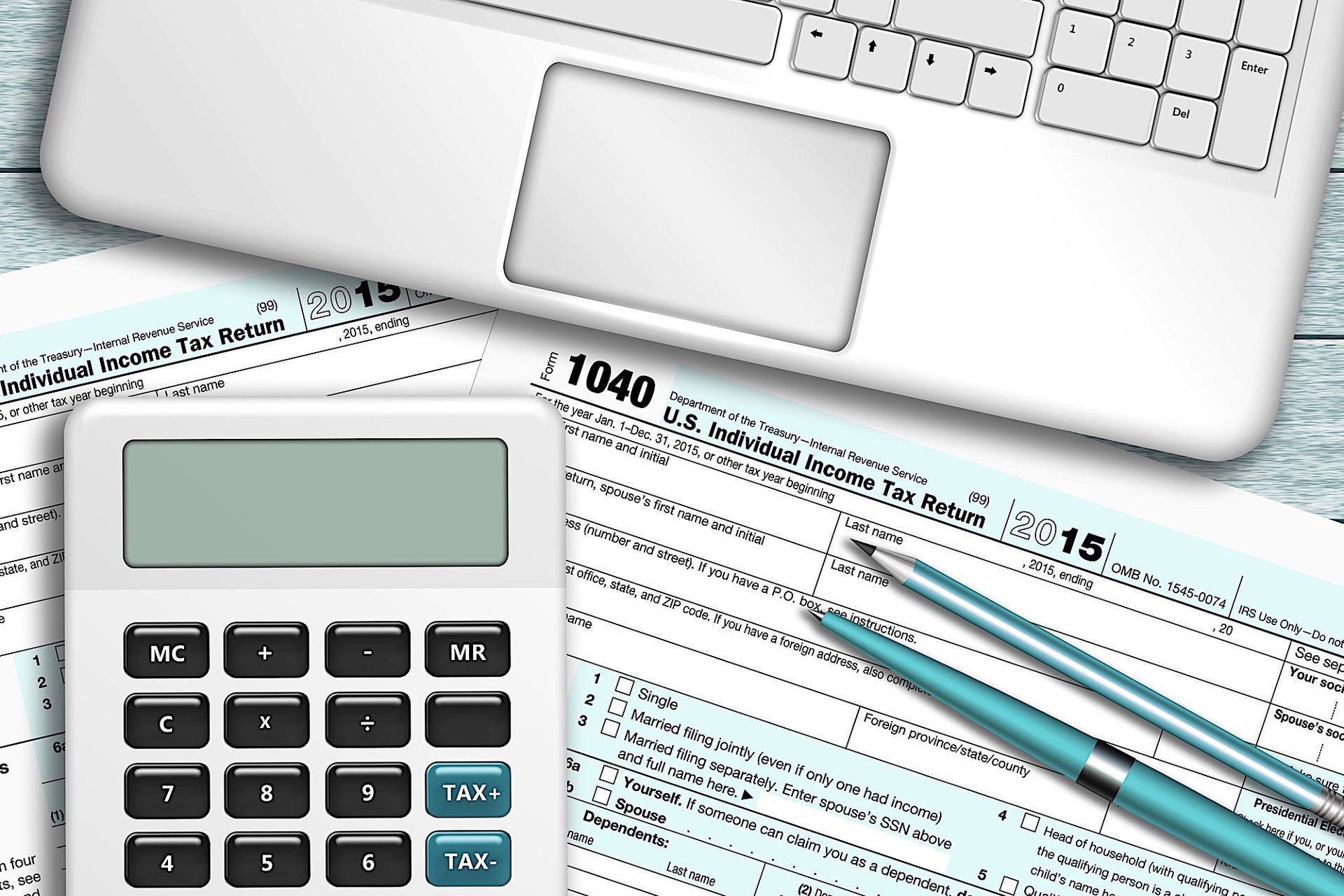Tax Tips Real Estate Investors Should Know This Year
April 3, 2018
Key Takeaways
- Long-term capital gains, depreciation, and rental property deductions are just a few tax benefits real estate investors receive.
- Working with a CPA is arguably the number one tax tip all real estate investors should take to heart if they want to get the biggest return possible.
- If you make a tax mistake when filing, all you have to do is fill out a 1040X form and mail it to the IRS.

Tax season is upon us, which means everyone is scrambling to file fast so that they receive a huge return. If you’re a real estate investor, chances are, you qualify for deductions that will help you save big. While it’s always important to talk to a professional before filing, get ahead by checking out these tax tips .
Undeniable Tax Benefits For Real Estate Investors
- Long-Term Capital Gains. So you’re an investor who sold his or her investment property. Great! You made a profit in the process. Great! What’s not so great; however, is that the IRS will want their share of your lute. If you held that investment property for less than one year, you’ll have to pay the short-term capital gains tax. This is not ideal because it means you’re responsible for paying the tax at whatever your regular IRS tax bracket is. If, on the other hand, you held your investment property for over a year, you will pay the long-term capital gains tax. Depending on your taxable income, you may not have to pay any additional taxes on that investment win. If you do fall under a higher income tax bracket, you’ll pay a little in taxes; but even the highest bracket is only taxed up to 20 percent of their gain — not bad after making a significant profit.
- Depreciation. Oh depreciation , the passive income property owner’s best friend. As with any business, a business owner can deduct the depreciation on materials that break down. Office supplies, like printers and computers (items that actually lose value over time), can be partially deducted every year until their lifespan, which is a number determined by the IRS, ends. The IRS has determined that the lifespan of a piece of a residential real estate is 27.5 years. This means you can deduct the value of your building for almost 30 years even though the value of your property is most likely increase in value! Plus, anything that actually does break down (i.e. maintenance issues) can be written off separately! Investors love this tax loophole because although the cost is deducted, the loss never really occurs.
- Appreciation. Tax breaks for depreciation and tax breaks for appreciation! Has the IRS been a real estate investor’s best friend all along?! Let’s not get ahead of ourselves. If you decide to buy and hold an investment property for a longer period of time (like Warren Buffet says, “my favorite holding period is forever”) you can grow your net worth without being a tax. When you sell a piece of real estate, you wind up paying transaction fees, commissions, and taxes. Avoid these expenses — and taxes — while your real estate appreciates!
- 1031 Exchange. Long story short, the 1031 Exchange allows investors to avoid paying the capital gains tax so long as they put the profit the made during the selling process into another piece of real estate. We broke down the 1031 Exchange in extreme detail, here.
- Avoid FICA. If you’re a passive income investor, the rental income you make is not subject to social security and Medicare taxes (aka FICA). While this won’t save investors loads of cash, it is still an undeniable benefit. And think about it this way: those who work 9 to 5 jobs pay about 7.65 percent of their salaries in FICA taxes; 15.3 percent if you’re self-employed! Look at it this way, if you’re making a regular salary of $100,000, the IRS will take $7650 from your profit in the form of FICA taxes. But if you made $100,000 in rental income, you keep every last penny.
- Self Directed IRAs. A 401k plan is a great tool many people use to save for retirement. But if you’re the goal is financial freedom, you may want to consider a self-directed IRA. Putting your savings into an IRA allows you to use that money to invest in real estate (401k style retirement plans only allow more traditional investments like stocks, bonds, mutual funds, etc.)
- Deductions. Rental property owners can deduct almost all the expenses they pay to manage the property: from mortgage interest to the printer paper, you use. Meals, travel, and other similar expenses are also deductible so long as they are related to the business. Let’s say you drive a few neighborhoods over to check on your rental property and swing by the mall on your way home. You can deduct your mileage from the whole trip using the IRS standard mileage deduction. Just be sure to keep track of all you do that’s related to your business throughout the year so that you save as much as possible.

7 Tax Saving Tips Investors Should Take To Heart
- Use A CPA. I cannot emphasize this tip enough. Real estate investors can save big time during tax season; however, the process is not a simple one. With so many loopholes and deductions, a CPA (Certified Public Accountant) will work his or her magic to make sure you get back every penny you deserve. Reach out to other investors in your market to find a CPA who specializes in real estate deductions. While it does cost money to work with a CPA, the amount of money you’ll get in your return will be well worth the spend.
- Own A Passive Income Property. Real estate rehabbing, wholesaling properties, investing in REITs, and private lending are all wonderful ways to invest in real estate. But if you truly want to save big come tax season, there’s no better way to do so than to purchase a rental property. As mentioned above, you can deduct the depreciation of the property (not the land) over 27.5 years even though the value of the property is more than likely increasing! The best part is, you aren’t paying any tax on the appreciation so long as you don’t sell.
- Get Organized. If you want to get back the amount of money you deserve this tax season, you’d better make it a priority to get organized. If you get back a huge return and wind up being audited by the IRS, you better believe they are going to want to see every receipt, every document, and every piece of proof you have to demonstrate every one of your business endeavors. If the organization isn’t your “thing”, you either need to change or you need to hire a bookkeeper or assistant. Online tools — like Quickbooks — are a great way to manage your expenses and access them easily.
- Differentiate Between Short And Long-Term Investments. When first jumping into the tax savings game, start by separating your long and short-term investments. Note that short-term investments are those that you’ve held for one year or less and long-term investments are everything else. For example, wholesaling, rehabbing , and flipping typically fall under the short-term investment category while buy and hold properties are typically long-term investments. Ask your CPA to help you figure out which entity structures are right for you and your investments.
- Track Your Expenses. In order to qualify for the biggest tax breaks, it is necessary to track each and every expense. If you’re not sure whether or not a certain expense is, in fact, a deductible, track it anyway and figure it out later. Chances are, it will help you save even more. A few examples of expenses to track are the cost of appraisal fees, business cards, commissions paid, advertising signage, escrow fees, insurance, vehicle expenses and more.
- Go Digital When people think about tax season, they typically conjure up images of overly stressed small business owners scrambling through old shoe boxes full of disorganized receipts. Avoid this trap by going digital. Tools and apps like MileIQ, Evernote, and Mint and great for bookkeeping as they allow users to categorize expenses and even take notes on specific inputs. Switching to a digital organization system will save you time, money, and endless headache.
- Think Green If possible, sprinkle environmentally friendly features and appliances throughout your rental properties or rehabs and watch the tax breaks come! Owners can deduct the cost of energy-efficient improvements that are installed in part of the interior lighting system, heating, ventilating, and air-conditioning system, hot water system, or building envelope so long as the upgrades reduce the total annual energy costs associated with the structure by 50 percent or more.
-Tax Tips Real Estate Investors Should Know This Year

When it comes to selling your home, first impressions really do matter. Imagine you're hosting a party, and your guests pull up to a house with a yard full of weeds, cracked pathways, and peeling paint. It's not exactly rolling out the red carpet, right? The same goes for buyers when they first lay eyes on your home. The good news is, enhancing your curb appeal doesn’t have to be complicated or costly, but it can make a world of difference in getting your home sold. Buyers will start forming opinions the moment they see your house from the street, so making sure it looks inviting is key to drawing them in. You may be thinking, “Where do I even start?” Well, don’t worry, we got your back.

Dipping your toes into real estate investing can feel like standing at the edge of an endless horizon—there are so many possibilities waiting to be explored.From towering commercial buildings to sprawling pieces of land, each type of real estate investment offers something unique. It’s all about finding the right fit for your financial goals and comfort level. Understanding these options can open doors to new possibilities, providing growth and stability. So, what are the major categories of real estate investments?

Transforming an unattractive house into a beautiful, desirable home is possible with a few strategic DIY upgrades, such as repainting walls, upgrading lighting, or refreshing kitchen cabinets. This article explores practical tips for ensuring a successful home makeover, including planning, budgeting, and choosing the right materials and tools. It also highlights the importance of safety and knowing when to call in professionals. Additionally, the article delves into why DIY projects matter, offering benefits like cost savings, personal satisfaction, and increased home value. Whether you're looking to enhance your space for personal comfort or to boost resale potential , these DIY strategies can turn any house into an inviting, functional home.

Embarking on a home remodeling project can be both exciting and challenging. This article explores common mistakes to avoid, essential tips for a successful remodel, and additional advice to ensure a smooth process. From planning and budgeting to choosing the right materials and managing disruptions, we’ll delve into strategies that will help you navigate your renovation with confidence and achieve the results you desire

Buying or selling a home is one of the most significant financial decisions you'll ever make. With so much on the line, it's crucial to ensure that every step of the process is handled carefully and securely. That's where escrow comes into play. It might seem like just another term thrown around in real estate, but understanding escrow can make all the difference in how smoothly your transaction goes. You might be wondering why escrow is necessary or how it fits into the overall process of buying or selling a property. It's easy to feel overwhelmed by the legal jargon and complex steps involved in real estate transactions, but escrow is designed to simplify things for you.

The real estate industry is undergoing a significant transformation with the advent of virtual home tours. These digital tools have revolutionized the way properties are marketed and sold, offering a more immersive and convenient experience for both buyers and sellers. As technology advances, virtual tours have become an essential component of modern real estate strategies, reshaping everything from marketing approaches to the sales process. However, this shift also brings challenges that the industry must navigate, particularly in terms of technological adoption and market acceptance. This discussion explores the impact, challenges, and future prospects of virtual home tours, highlighting their growing importance in an increasingly digital world.

If you buy or own property as a real estate investor you have the option of operating it as a long-term rental or a short-term one. Long-term rentals are generally rented to a tenant with a 12-month lease term at a fixed annual rent, while short-term rentals are rented on a daily, weekly, or monthly basis, like vacation rental homes. Many real estate owners are resorting to short-term rentals in order to generate higher profits than renting to a normal tenant who has a prolonged lease of a year or more. This is due to the rise of applications like AirBnB and VRBO which do provide certain advantages but you should weigh the risks before going through the road. For this article, we'll define short-term rentals as homes rented for 90 days or less and offer advice on the benefits and drawbacks of starting a short-term rental business.

In today's real estate market, eco-friendly home improvements are not just about saving the planet; they're also about adding value to your property. Buyers are increasingly looking for homes that offer energy efficiency, sustainability, and lower utility costs. By incorporating green upgrades like energy-efficient windows, solar panels, smart thermostats, and sustainable flooring, you can enhance your home's appeal and market value. This guide explores various eco-friendly enhancements that not only reduce your environmental footprint but also boost your home's resale value , making it a wise investment for the future.

Selling your house for cash provides a straightforward path to a quick and efficient transaction, offering distinct advantages over traditional selling methods. This comprehensive guide takes you through every step of the process—from the initial contact with cash buyers to receiving your payment. Discover the benefits of choosing a cash sale, important considerations before making your decision, and practical tips for navigating negotiations and closing. Whether you're facing time constraints, seeking financial flexibility, or simply prefer a hassle-free sale, this guide equips you with the knowledge to achieve your selling goals effectively.

Navigating property taxes when selling a house can be complex, but understanding key tax rules and regulations can help simplify the process. From the capital gains exclusion to special situations like divorce and military service, knowing how to handle these aspects can minimize your tax liability and ensure a smooth sale. This guide will provide essential insights and tips to help you manage property taxes effectively when selling your home.

